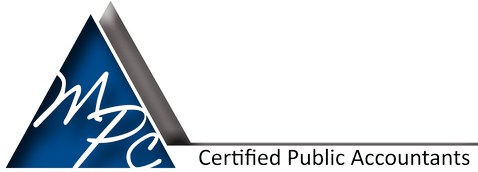2024 Year End Tax Planning
Reminder: Postponed Federal Tax Deadlines
For many North Carolina residents, the due date for third quarter 2024 estimated tax payments was postponed to February 3, 2025. The due dates for 2024 fourth quarter estimated taxes, 2024 federal tax returns, and first quarter 2025 estimated taxes, have been postponed to May 1, 2025 for all NC residents.
If we previously recommended that you pay both your third and fourth quarter taxes by February 3, 2025, you can defer payment of the fourth quarter amount until May 1, 2025. Please note that NC income tax and estimated income tax payment due dates have not been postponed.
Year-End Tax Planning Strategies
Charitable Contribution Strategies:
Donate appreciated stock held for more than one year to deduct the stock’s value up to 30% of your adjusted gross income (AGI), without paying tax on the appreciation.
Bunching donations every other year to itemize deductions when your total itemized deductions exceed the standard deduction.
Donations by credit card made before year-end still count for this year’s deduction, even if the bill isn’t paid until the following year.
Qualified Charitable Distributions (QCDs): If you’re over 70½, you can donate up to $105,000 from a Traditional IRA to reduce taxable income, even without itemizing. A QCD can also fulfill all or part of your Required Minimum Distribution (RMD).
Retirement Account Contributions:
401(k): For 2024, the contribution limit for a 401(k) is $23,000, with an additional $7,500 catch-up contribution for those aged 50 and over.
IRA: The contribution limit for an IRA in 2024 is $7,000, plus an additional $1,000 catch-up contribution if you’re 50 or older.
Review Withholdings and Estimated Taxes:
Review your tax withholdings and estimated tax payments to ensure you’re not underpaying. If you find you've under-withheld, you can adjust your withholding or make estimated tax payments to avoid underpayment penalties. An advantage of withholdings is that they are treated as paid throughout the year, so they can help correct any underpayments from earlier months.
Roth IRA Conversions:
Converting from a Traditional IRA to a Roth IRA remains a popular strategy, especially if you expect your future tax rates to be higher. A Roth IRA conversion is a taxable event, and it may make sense if your current taxable income is lower than expected in retirement.
Federal Tax Deduction for State Taxes Paid by Passthrough Entities:
S corporations, partnerships, and LLCs taxed as S corporations or partnerships should make any remaining state pass-through entity (PTE) tax payments by December 31. These taxes can be deducted on the entity’s federal income tax return.
Health Savings Account (HSA) Contributions:
If you become eligible to contribute to an HSA later in the year (even in December), you can still contribute the full year’s worth of deductible contributions, assuming you meet the eligibility requirements. HSA contributions are deductible, earnings grow tax-deferred, and withdrawals are tax-free if made for qualifying expenses.
Additional Year-End Planning Strategies:
Tax-loss harvesting: Sell stocks with unrealized losses and be mindful of the wash sale rules.
Cash method businesses: Prepay certain expenses or pay bills by year-end to capture deductions.
Bonus depreciation: Take advantage of 60% bonus depreciation for equipment placed in service by year-end.
Tax basis for pass-through entities: Ensure you have enough tax basis to deduct losses and review your time working in pass-through entities to comply with the passive activity loss rules.
Maximize retirement contributions: Contribute the maximum allowable amount to retirement plans like 401(k), IRA, SEP, and SIMPLE.
Required Minimum Distributions (RMDs): Take RMDs from your retirement plan if you are over 73 years old by the end of the year.
Gift tax strategy: Make gifts of up to $18,000 per recipient ($36,000 for married couples electing to "split gifts") to children or grandchildren and pay tuition or medical expenses directly to qualified institutions on their behalf.
This planning can help maximize deductions and minimize taxes for the 2024 tax year. If you have any questions or need assistance, please reach out!

